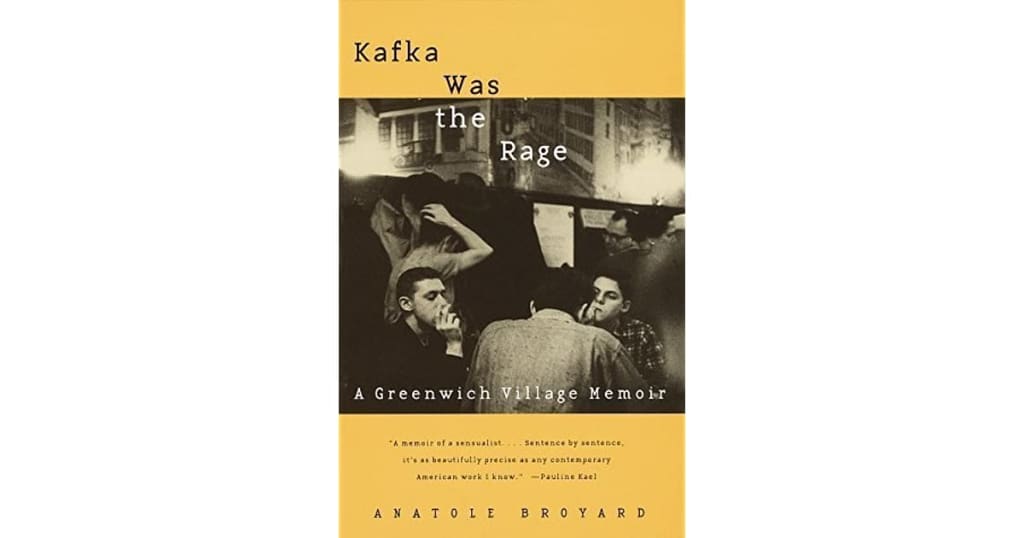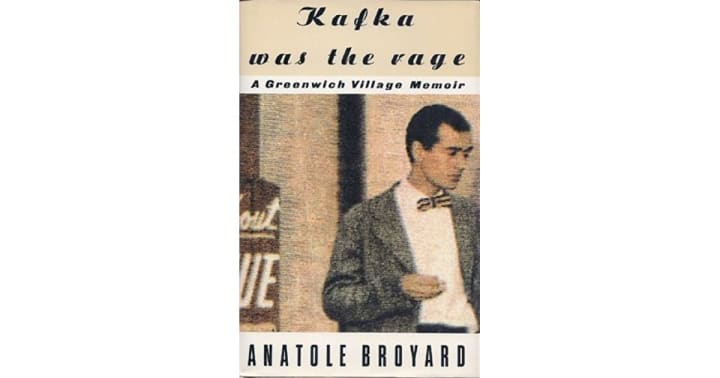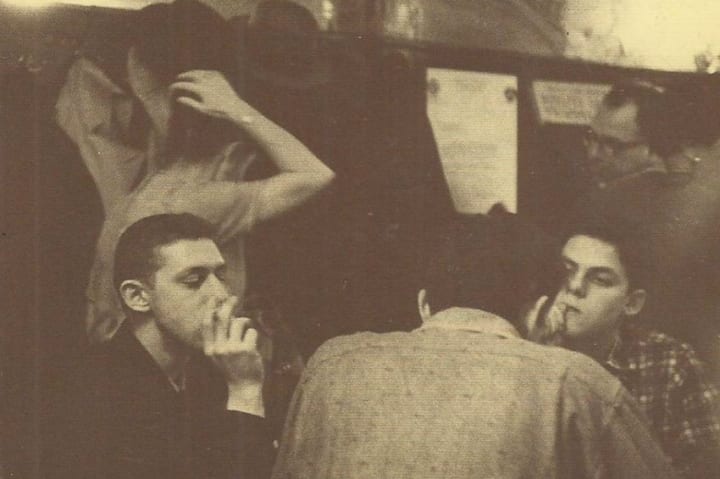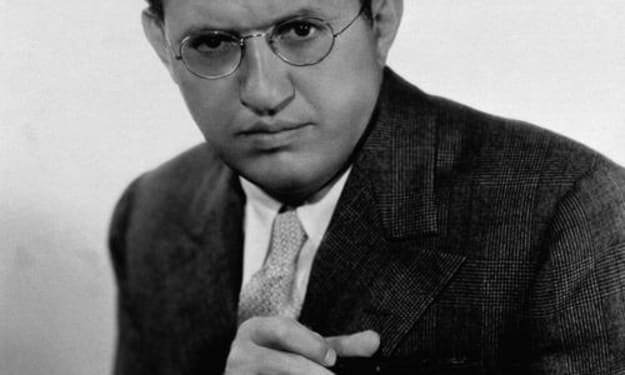"Kafka was the Rage" by Anatole Broyard
A Reading Experience (Pt.19)

The first time I ever read “Kafka was the Rage” by Anatole Broyard, I was sitting on a coach on my way to a university trip for five days of intense work. I was in the second year of my undergraduate degree and had just about turned twenty years’ old. My first experience of reading it was brilliant and I read the whole thing in one sitting, much to the confusion of my lecturer since I was the only one not talking on the coach ride. It ended up with me talking to my lecturer about how good the book was - and it was awesome. “Kafka was the Rage” really influenced my world view of how the planet worked after the second world war. It made me believe less in the fact that everything went back to normal and believe more in the fact that there were actually a great number of problems after the war, especially concerning these displaced soldiers pretty much left to their own devices. It is one of those stories that simply touches you with its realism.
My favourite character is the narrator because it is through him that we see all of this displacement and through him that the real problems of the world involve the fact that thousands upon thousands of people were left without jobs or incomes and the economy was basically in ruin and everyone had PTSD of some kind. What makes the narrator great is his ability to endure through it all and his ability to continue with some of the things he loved before the war like literature. He comments on the fact that many people loved literature and many of them came back without their own personalities, but at least they still had their books. They didn’t have personalities, they had literatures. It is such a beautiful novella and each of these contemplative lines makes the realism of the narrator’s character seems to push through the book and into the soul of the reader. Unfortunately the narrator’s downfall is his empathy. He doesn’t seem to have a lot of empathy for women such as Sherri. Sherri, I feel is an infantile and tragic character in which she contains herself as a needy person with the requirement for human attention and affection. The narrator never really gives her the nourishing treatment she requires and yet, she continues to be with him. The fact that there is clearly a relationship there means that the war must have changed or displaced things. Everything isn’t all okay, everything is wrong and the narrator lacks the empathy to even care anymore. This comes from another fact that Sherri has the habit of acting like a child and asking for attention through action. I believe that the narrator represents the sheer displacement in the way everyone comes back from a tragic journey completely changed. We never really see what the war is to the narrator, but we see what it has left behind. We don’t only see it through the narrator but we see it through the way in which he describes his friends who have also returned from the war. However, we don’t know exactly how extreme it is because the narrator seems to have an empty hole in the place of empathy.

One of the key themes of the book is literature and personality. The way in which the book presents literature as an escape represents not only the fact that books are not just a medium of entertainment, but also an escapism from the new world in which the people who experienced the war are now displaced. It entails all of the views that the narrator has on literature and the nostalgia he has from his time before the war, the friends he had that are now completely different people and the interests and loves he had that didn’t contain mortal terror and trauma. The narrator plays out this theme by constantly linking his personality and the personality of others back to novels, poems and literatures that he has experienced over the years. With the 1940s well underway, even the title is a link to the contextual times of what was popular and new in the literary world. It was all about Franz Kafka, because Kafka was the rage. This theme is mostly used in order to make it clear that there was some sense of normalcy before the war. It gives the reader something to go off when they want to explore the true personalities of our characters without the PTSD they gather from the war. It impacts how we read the book because the novella constantly goes back and forth from the past and into the present, especially when we meet new characters and require some kind of history of them in order to experience their personality properly. When we read the backstories, we can sympathise a whole lot more because now we know the place they took up before the trauma of the war. It’s like they left home and returned to be completely different people. It is very sad when you really think about it and I think the narrator really contextualises this within the literature he speaks of.
This book means so much to me because of the fact it is to this day, one of my favourite books of all time. It has a very clear explanation of the nostalgia that people have for the ‘old days’ of personalities made from literature. It’s like everyone has become a different person and yet, nobody knows who anyone is and nobody knows who they are anymore. It’s a tearful story about a bunch of people who used to connect through literature and can no longer relate to their own realities at this new period of time. My latter reading experiences were heavily impacted by this book because I found myself looking more towards PTSD literature from the war, Sebastian Faulks, Wilfred Owen, Ernest Hemingway, Nevil Shute and others. It made me far more interested in changing human natures between times of crisis. I realised in my re-readings of the book that the characters not only were interested in literature but even after the war, they seemed to still vastly long for the world they had left behind and though no damage was done physically, as far as they concerned - it was all gone. The best thing about the book is really all their abilities to endure this change with a stern appearance.

I think more people should read this book because to this day, I have never met a person who has read it and that upsets me. You are all missing out on an amazing but very short book about a vastly changing experience in a time of turmoil. However, some people (mainly people I’ve recommended the book to) read this book today for the sake of (what I have heard) the fact that the characters are each uniquely experiencing this manic PTSD experience whether they were physically in the war or not. When I next re-read the book, I’m going to be looking at the American 40s as a stereotype in comparison to within this book of experience. My copy is covered with notes already so I may have to get a notebook.
"It was as if we didn't know where we ended and books began. Books were our weather, our environment, our clothing. We didn't simply read books; we became them. We took them into ourselves and made them into our histories."
"Kafka was the Rage" by Anatole Broyard
About the Creator
Annie Kapur
200K+ Reads on Vocal.
English Lecturer
🎓Literature & Writing (B.A)
🎓Film & Writing (M.A)
🎓Secondary English Education (PgDipEd) (QTS)
📍Birmingham, UK






Comments
There are no comments for this story
Be the first to respond and start the conversation.